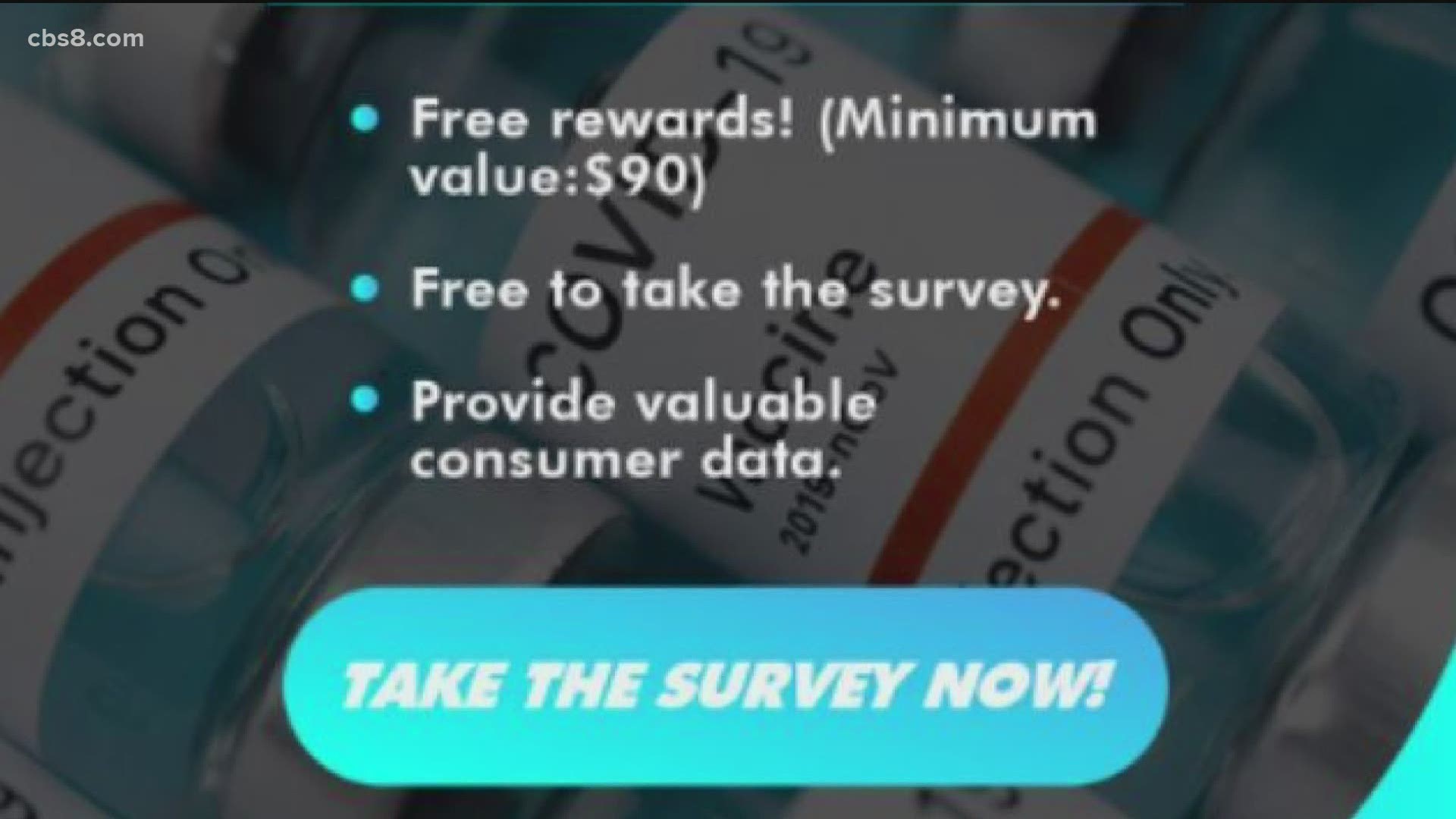SAN DIEGO — As more and more Americans become eligible to get the COVID-19 vaccine and often desperate to book an appointment, scam artists are taking advantage. In response, fraud experts are sounding the alarm to beware of a growing number of schemes designed to steal your money and your personal information.
"The thing that you want to look out for is anyone contacting you who you did not contact," warned Marilyn Huffman of the Better Business Bureau.
Something everyone should be aware of is an email or a text message claiming to be from the drug company Pfizer, asking you to answer "survey questions" about their COVID vaccine.
Huffman said this latest ploy falsely claims to either offer you money for your response, provided you first hand over your banking information to receive it, or pretend to offer a "free gift."
"But oh, by the way, you have to pay almost $20 in shipping and handling," Huffman said. "I don't know about you, but to me, that's not a 'free gift'!"
Some tips on spotting a "survey scam" are to beware of pressure to respond immediately; look out for spelling errors and poor grammar; and be on the lookout for company logos that don't seem valid.
"Just hover over the URL link when you are looking something up," Huffman also advised, "It takes a few seconds, but it will usually auto-populate and you'll be able to verify whether or nor this is a legitimate thing coming your way."
Another current COVID-19 vaccine scam Involves fraudsters calling you out of the blue, offering you a vaccine appointment for a price, despite the fact the vaccine is free.
One woman knew better than to become a victim...
"When someone calls you on the phone, be very suspicious and don't give out any information," Janice Gach said.
One fake website, now under investigation, offered the vaccine for $30 a dose.
The BBB's Marilyn Huffman recommended, before taking any action, to pause and take a deep breath.
"And so you can ask those tough questions," she added, "Defend yourself, it is okay to ask those questions!"
Yet another target for scam artists are those vaccination cards that so many people are proudly posting on social media accounts after they've gotten their shot.
The problem is that those cards are a bonanza for identity thieves, filled with personal information.
"it has your birth date, it can sometimes have your home address on it, including your full name," said Robyn Householder of the BBB. "It's a scammer's paradise!"
Instead of posting your personal vaccination card for the world to see, experts advise sharing a picture of your vaccination sticker instead.
WATCH: COVID-19 vaccine scams to look out for

